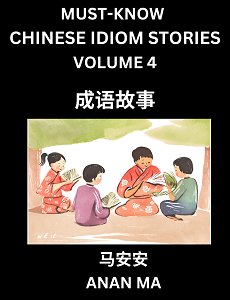Learn Chinese Idiom with Pinyin and English

- Idiom in Chinese-邻女窥墙。
- Pinyin of Idiom– lín nǚ kuī qiáng.
- Idiom’s Meaning in English-“Lín nǚ kuī qiáng” is a Chinese idiom that depicts a woman who sneaks a peek at a man from a neighboring house over the wall. It often refers to a woman’s covert affection or curiosity towards a man who lives nearby, expressing her secret desire or interest in a romantic or sexual manner. The idiom is often used metaphorically to describe someone’s secret admiration or yearning for someone else.

Chinese Idiom Stories Books (HSK All Levels):
- Books to Learn Chinese Idiom Stories (Part 1)
- Books to Learn Chinese Idiom Stories (Part 2)
- Books to Learn Chinese Idiom Stories (Part 3)
Learn Chinese Idiom Story in English (成语故事的英文)
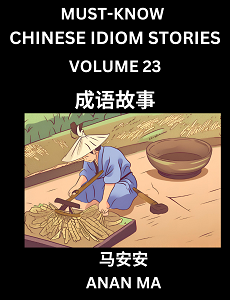
The story of “Lín Nǚ Kuī Qiáng” originates from ancient China. It tells of a young woman who lived next to a tall wall. Her neighbor was a handsome and erudite scholar. The woman was deeply attracted to her neighbor’s talent and charm, but due to the constraints of the ethical code of conduct in ancient society, she could not express her feelings directly. Therefore, she often secretly stood by the wall, peeking through a narrow gap to observe her neighbor’s every move, admiring him silently. However, her actions were eventually discovered, and although she had not done anything inappropriate, her secret affection became a topic of gossip among the people.
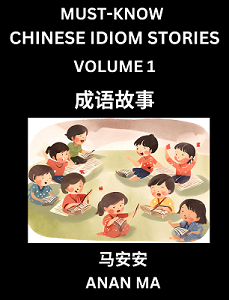
Learn Idiom Story in Chinese (成语故事)
“邻女窥墙”的故事源自古代中国。传说,有一位年轻的女子住在一堵高墙旁边,她的邻居是一个英俊潇洒的读书人。这位女子被邻居的才华和气质所吸引,但由于古代社会的礼教束缚,她不能直接表达自己的情感。于是,她常常偷偷地站在墙边,透过墙上的缝隙窥视着邻居的一举一动,默默地欣赏着他。然而,她的行为终究被发现了,虽然她并没有做出任何越轨之举,但她的这种暗恋之情却成为了人们茶余饭后的谈资。
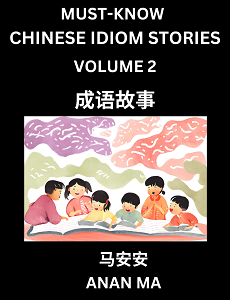
Learn Keywords with English, Simplified Chinese Characters, and Pinyin (关键词)
邻女 (lín nǚ): neighboring woman
窥墙 (kuī qiáng): peek over the wall
读书人 (dú shū rén): scholar
礼教 (lǐ jiào): ethical code of conduct in ancient China
暗恋 (àn liàn): secret love
谈资 (tán zī): topic of conversation
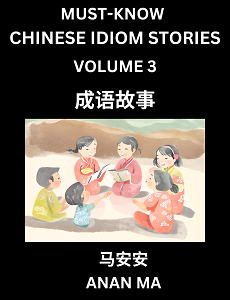
Pinyin of Idiom Story (故事的拼音)
“Lín nǚ kuī qiáng” de gùshì yuán zì gǔdài zhōngguó. Chuánshuō, yǒuyī wèi niánqīng de nǚzǐ zhù zài yī dǔ gāo qiáng pángbiān, tā de línjū shì yīgè yīngjùn xiāosǎ de dúshūrén. Zhè wèi nǚzǐ bèi línjū de cáihuá hé qìzhí suǒ xīyǐn, dàn yóuyú gǔdài shèhuì de lǐjiào shùfù, tā bùnéng zhíjiē biǎodá zìjǐ de qínggǎn. Yúshì, tā chángcháng tōutōu de zhàn zài qiáng biān, tòuguò qiáng shàng de fèngxì kuīshìzhe línjū de yījǔ yīdòng, mòmò de xīnshǎngzhe tā. Rán’ér, tā de xíngwéi zhōngjiù pī fà xiàn le, suīrán tā bìng méiyǒu zuò chū rènhé yuèguǐ zhī jǔ, dàn tā de zhè zhǒng ànliàn zhī qíng què chéngwéile rénmen cháyúfànhòu de tánzī.
